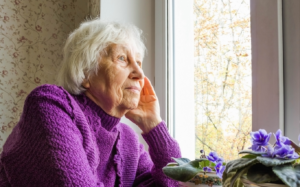When we think about “care”, we often picture personal care. Washing. Dressing. Hospital visits. Social care packages. Nurses and care homes.
But real care, the kind that keeps people going day to day, is often smaller and quieter.
It’s the cup of tea made mid-morning. The chat over breakfast. Help getting the iPad to work. Someone sleeping in the next room, just in case.
These small things don’t sound like “care” in a policy document. But they are what make older people feel safe, seen, and less alone.

The Care We Don’t Count
There are 5.7 million unpaid carers in England and Wales. Many are family members or friends. They help out because they care, but also because there is no one else.
More than 1.4 million older people in the UK are often lonely, according to Age UK. Over half a million go at least five days a week without speaking to anyone.
These numbers are rising. And they don’t just point to a health problem, they point to a support gap.
Most people want to stay in their own home as they age. But that depends on more than care plans. It depends on someone popping in. Knowing there’s help nearby. Feeling less alone at night.
This kind of support is rarely funded, tracked or measured. But it’s what gives people the confidence to keep living independently.
Why It Matters Now
The UK is ageing fast. By 2043, 1 in 4 people will be over 65. We can’t build our way out of this – there won’t be enough care homes or formal carers.
And with rising costs and staff shortages, traditional care services are stretched. We need to think differently.
That means recognising the full spectrum of care. Not just what happens in hospitals or care homes, but what happens in kitchens, hallways, spare rooms.
Rethinking Support
Solutions like Homeshare offer one answer. A younger person lives with an older householder, offering company and a few hours of help in exchange for affordable rent.
It’s not formal care. But it offers presence. Company. Peace of mind. And that has real value.
By broadening what we think of as “care”, we open up new ways to support people. We also lighten the load on families, services, and the NHS.
A Policy Shift Waiting to Happen
Too often, care is only counted when it breaks down, when someone is hospitalised, or needs a crisis package. But the early signs, the gaps filled by neighbours, friends, adult children, are where real prevention happens.
If we want more people to age well at home, we need to see care as more than tasks and timesheets.
We need to start valuing presence, not just procedures.
Sources:
- Age UK (2023): Loneliness and older people
- ONS Census 2021: Unpaid carers in England and Wales
- Office for National Statistics (2023): Population projections


